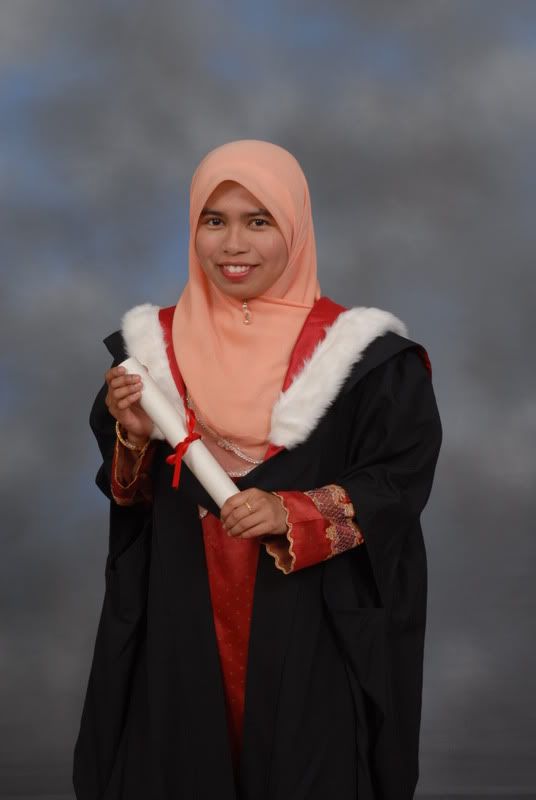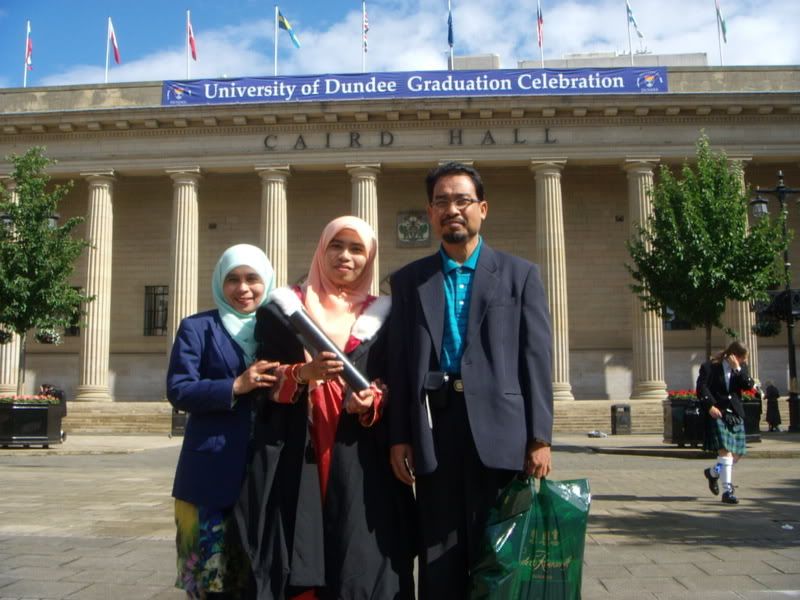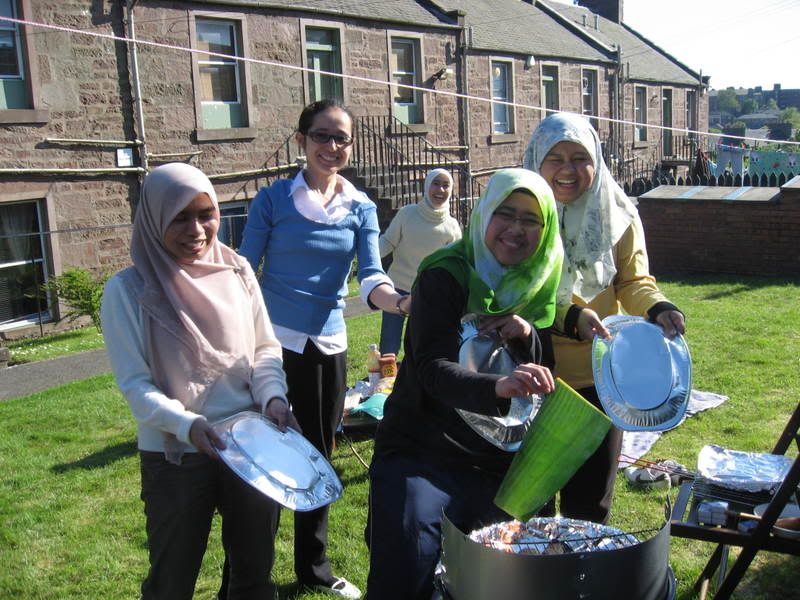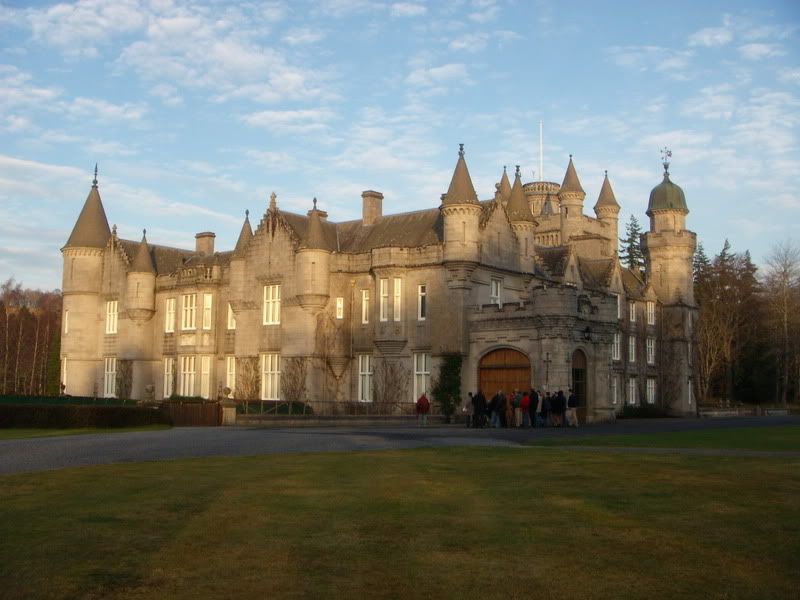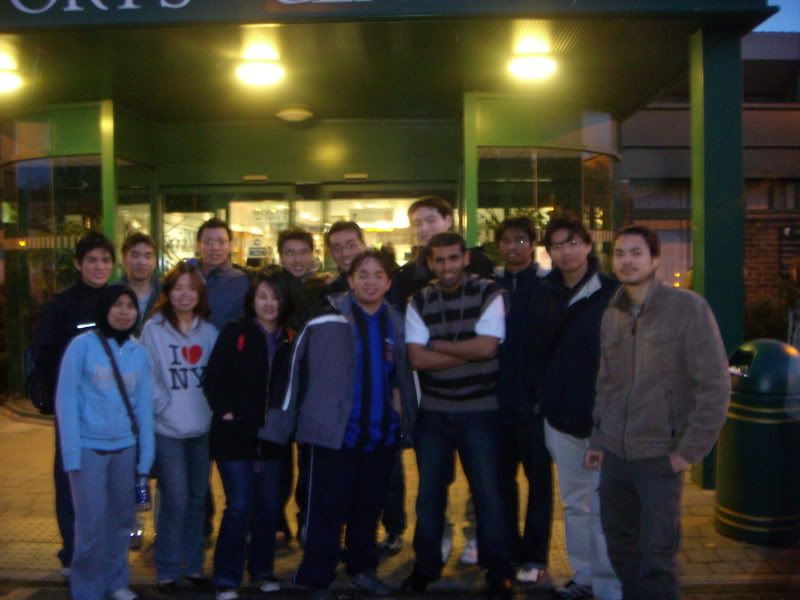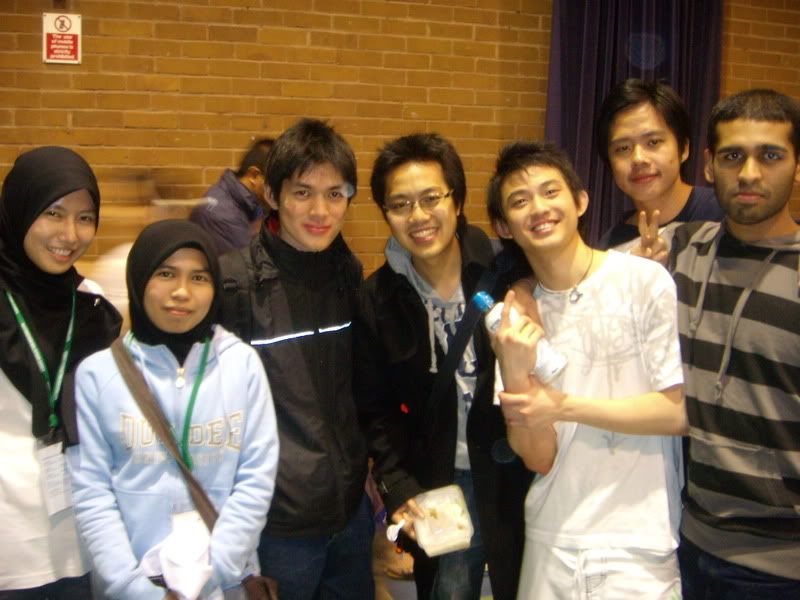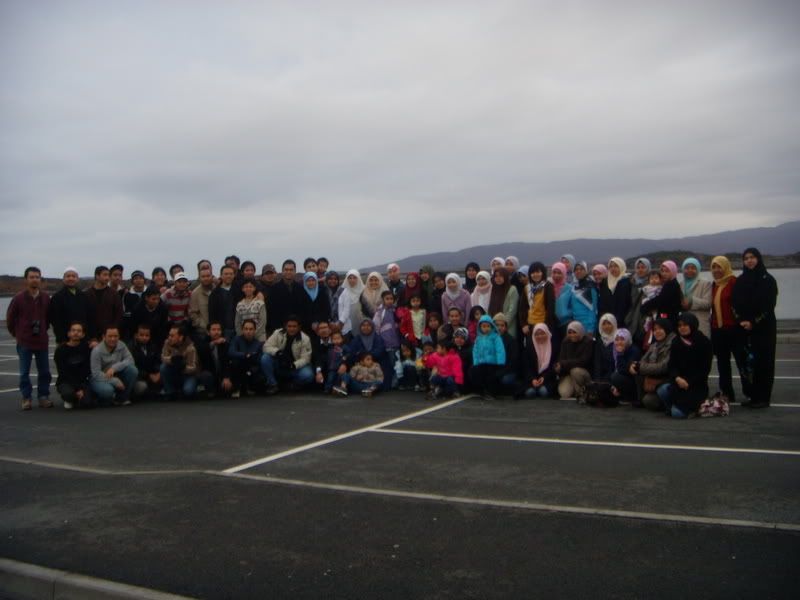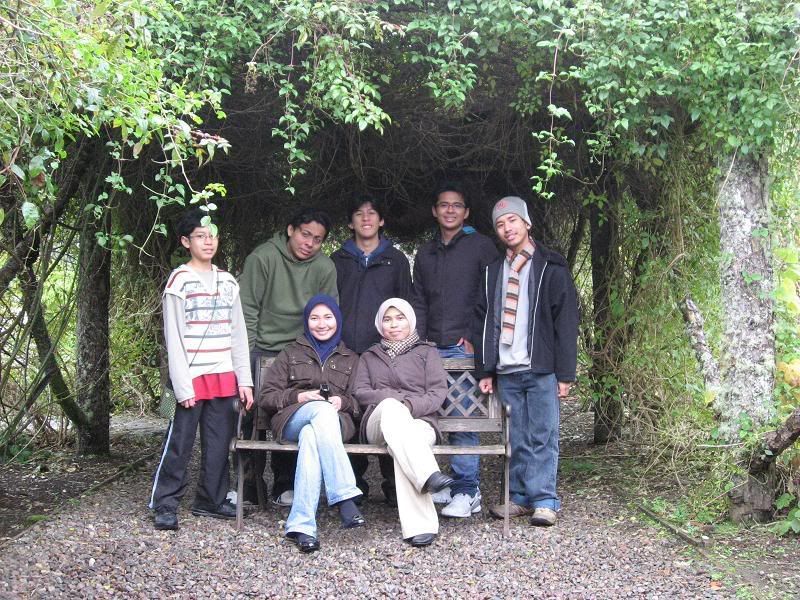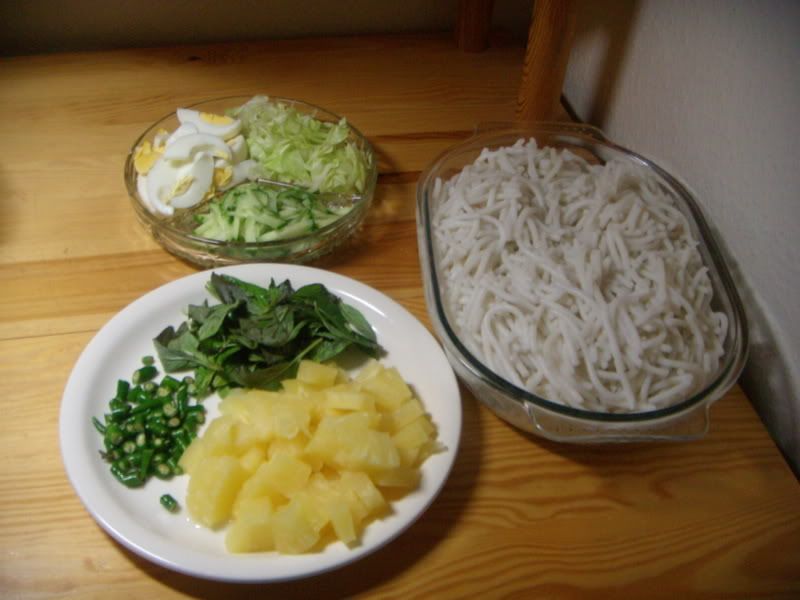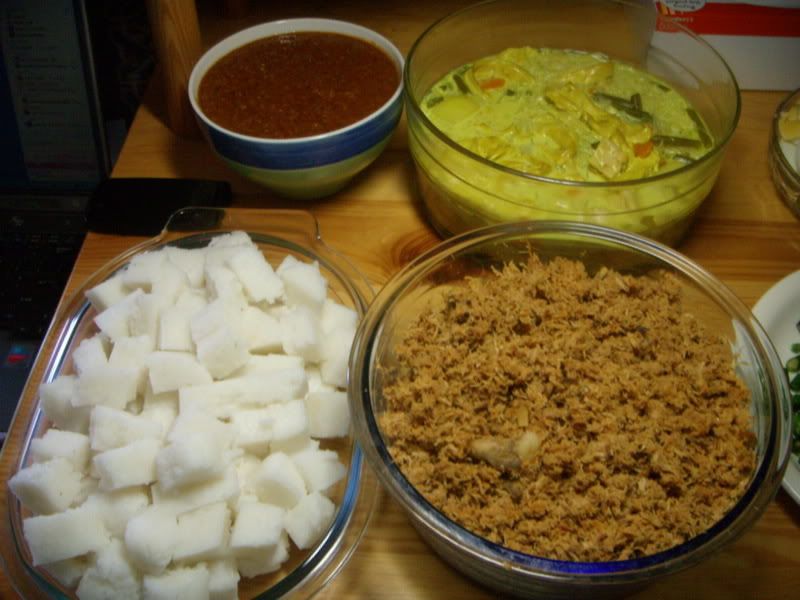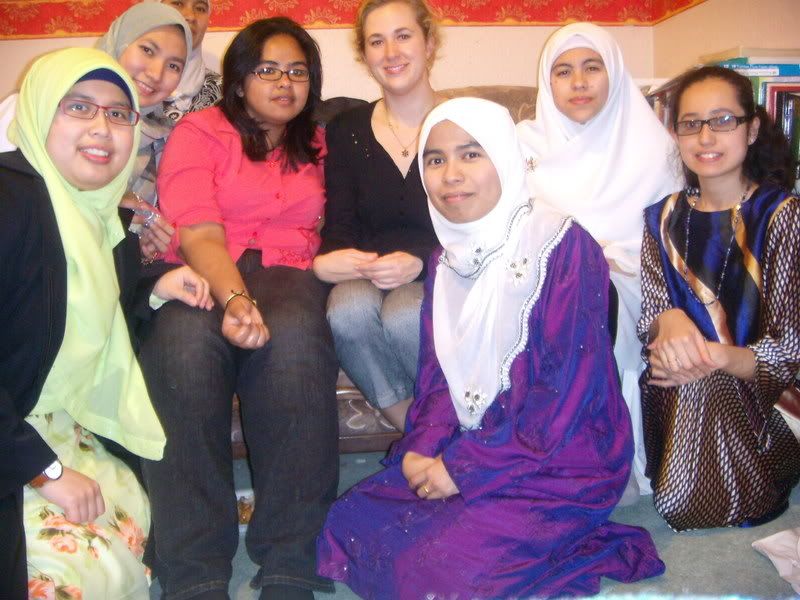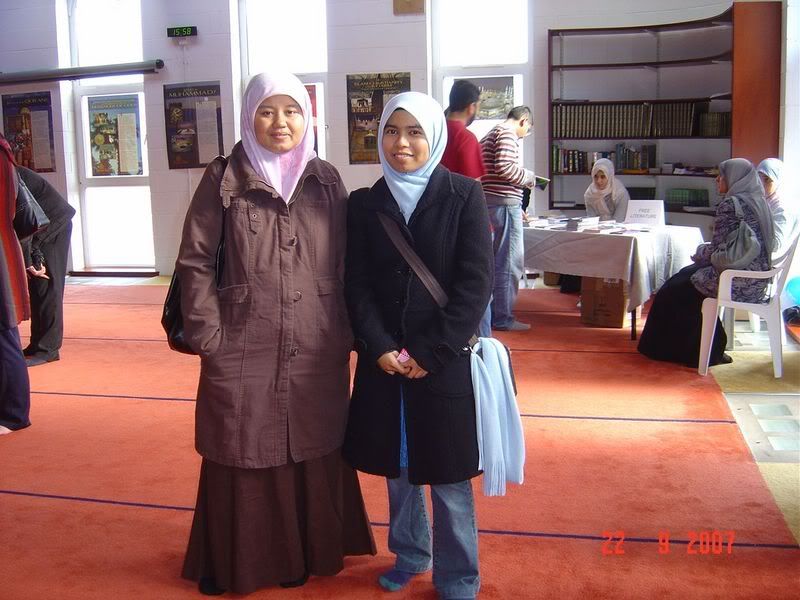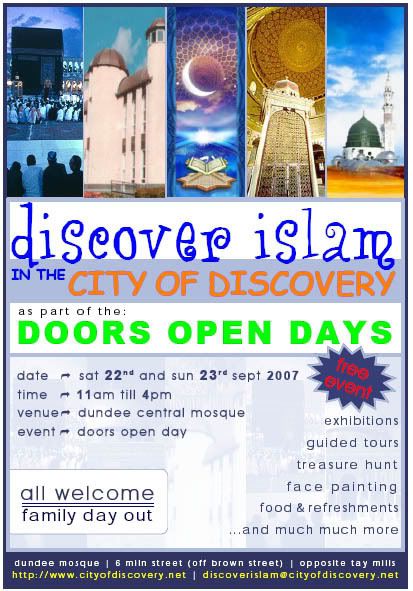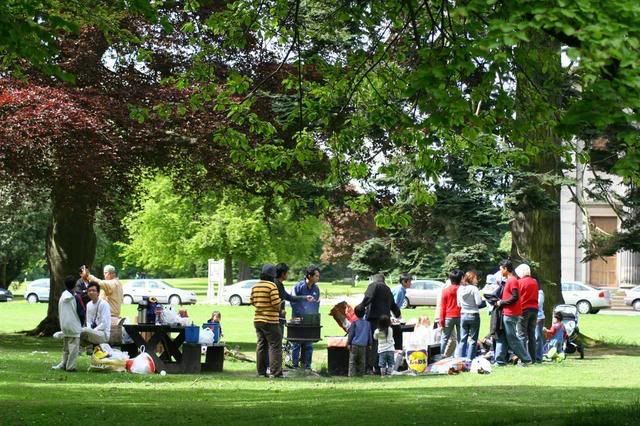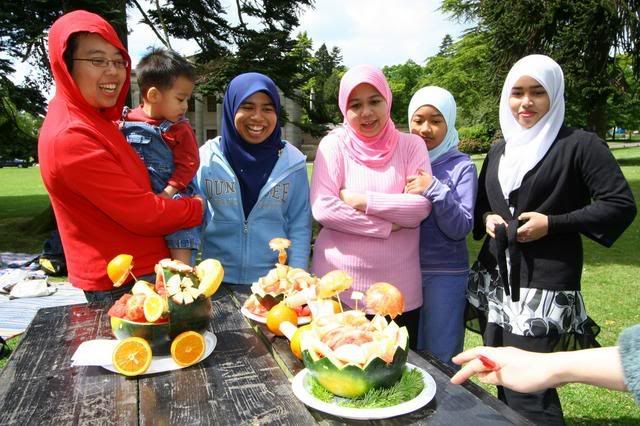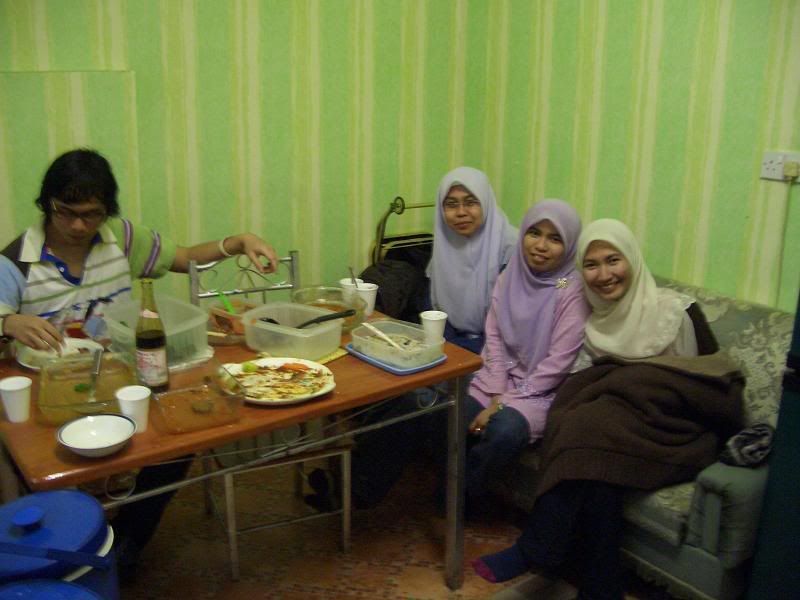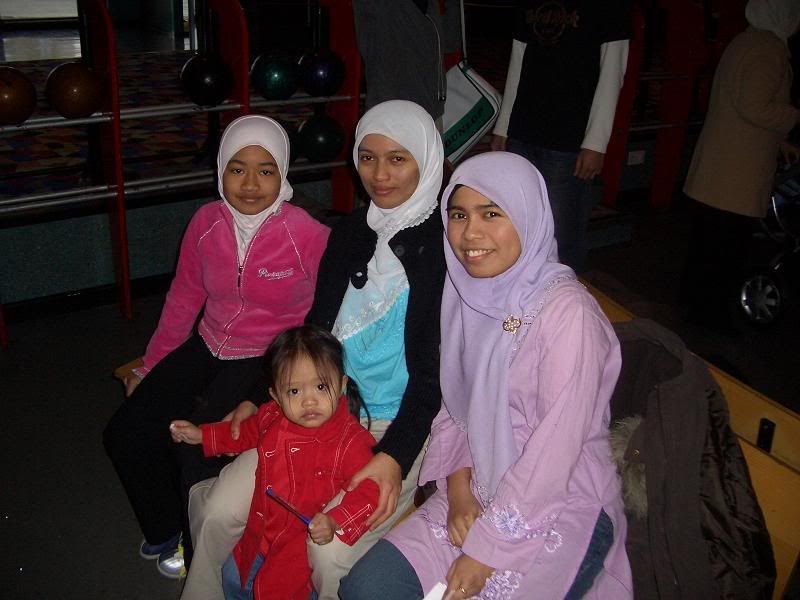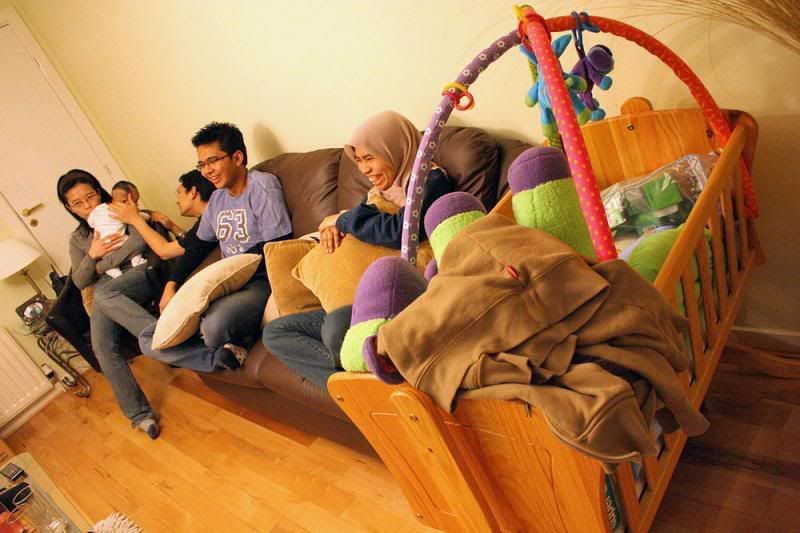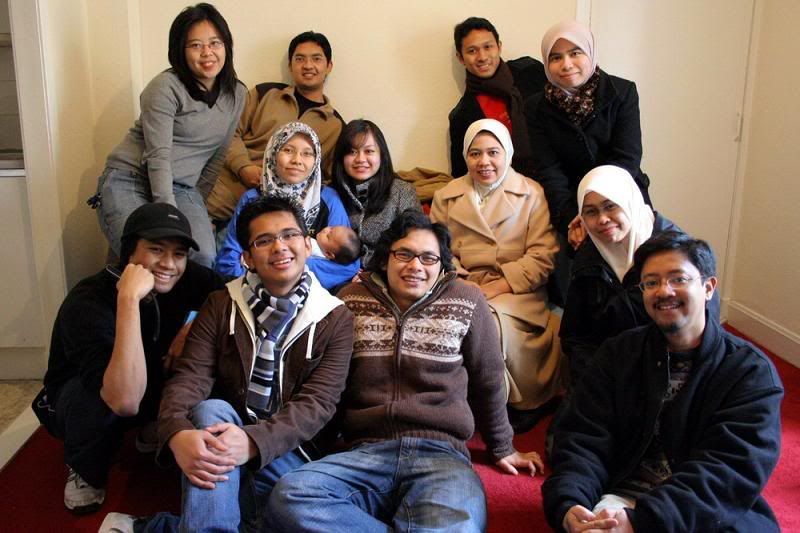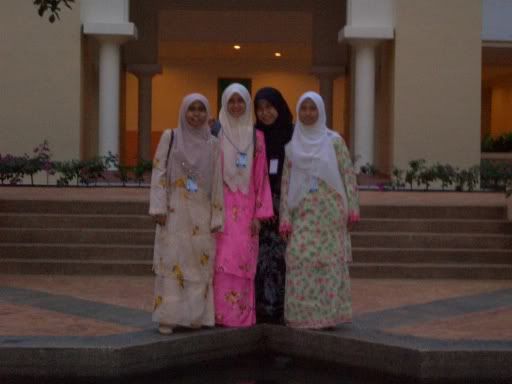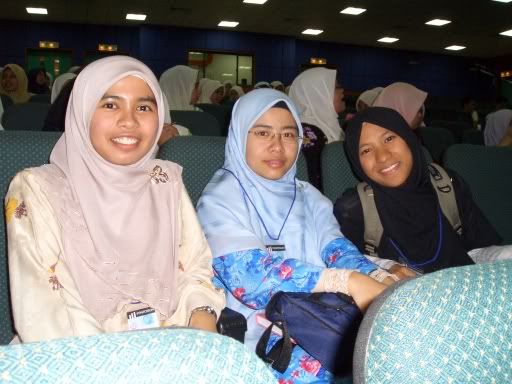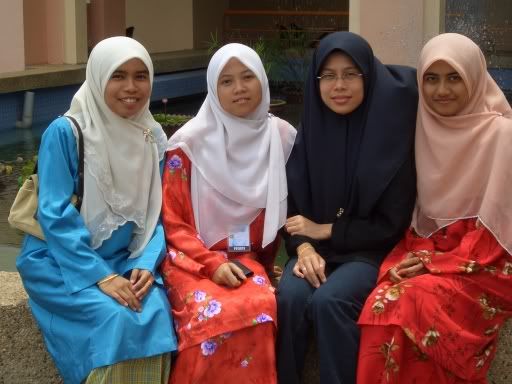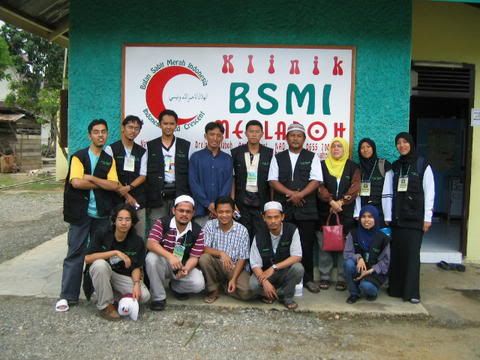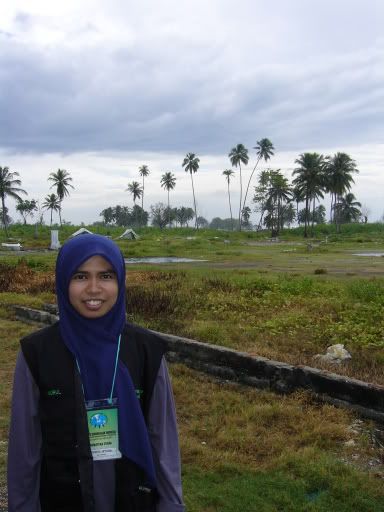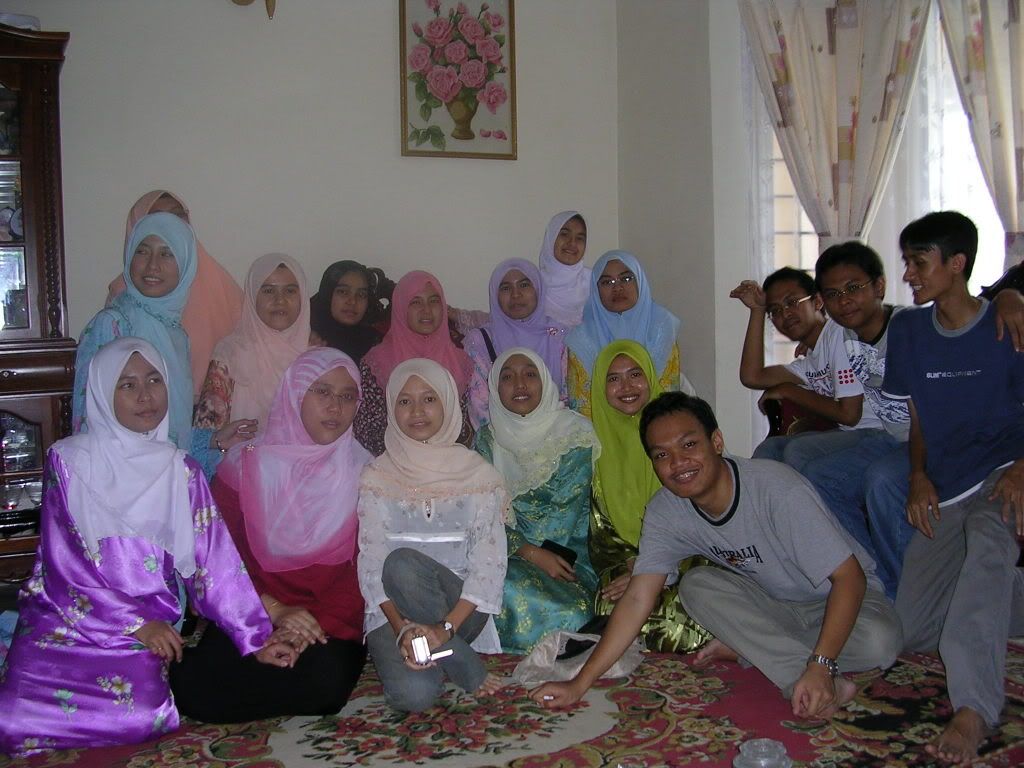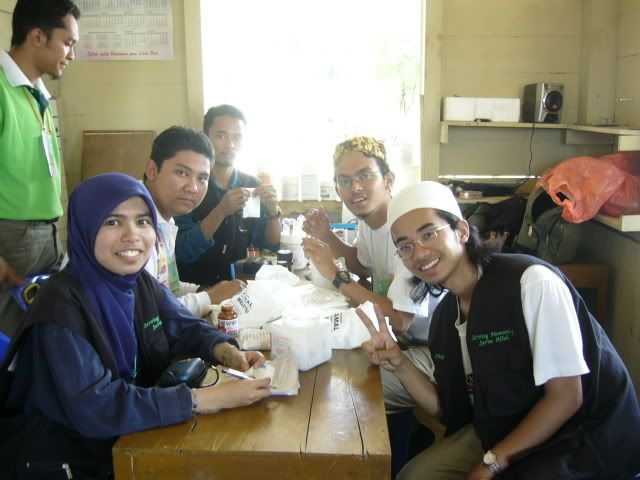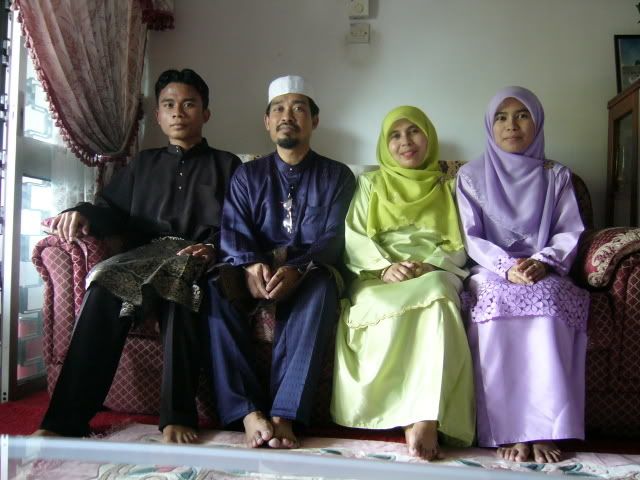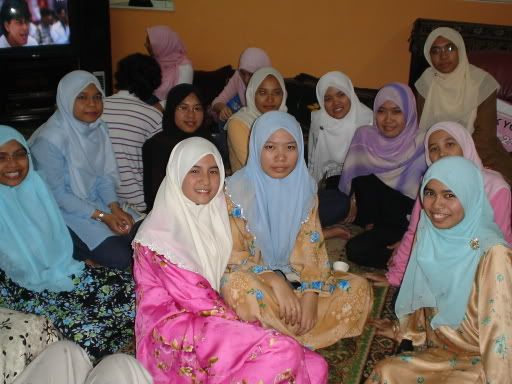Wednesday, April 04, 2007
it's april now...
mmm....it's already april...3 months left...exam coming...but i still njoy myself..too much(my fren always say this to me)...yup...i admit it..march was a very 'busy' month for me...went to alton tower in stoke, then birm, then coventry...manchester n preston at the end of the month ( a bit melampau i guess)..even my poket pon da cukup terkoyak...
of all the places i went last month, i would like to share my experiences in manchester...i wudnt be enuf if i want to write all of them..huhu...it was the imam symposium with 'extreme medicine' as the theme this yr...congrats to all the committee members esp plus to all delegates who joined the sympo..i know u all hv great time...i myself hv great time there 'altho i ve to be faci on the spot' but i learned lots of new things there..thanks to all the doctors who joined us, came all the way from msia...yea..who want to join mercy msia, dun forget to register after u graduates! fiqh medicine was very useful, thanks to dr.latiff for the good discussion, wish we could have more time to discuss bout it..i 'l spread the words around...ibadah pesakit book were sold out, all of them..hehe..penjual buku yg berjaya jugak saya ni kan...for my frens yg havent buy their 'aceh book'..pls contact me...its a donation to the orphanage house in acheh...marilah bersedekah...there s few more left...
okay2..back to the sympo...most of the delegates find the practical session really helpful...i guess its true...when i was in london that time, i felt the same...hope we can use what we have learned in the future for the good...insyaAllah..
now i'm back in dundee...get back to my normal daily life..with my books n project...i wish i could turn the time backwards..hahaha..
thats all for the time being,...wassalam
about palestin-copy from raudah's blog
History and Background
There were many verses in the quran mentioning the
This reflects our duties as muslims and slaves Of Allah. As muslims we have 2 main obligations in life. First, ibadah, as the verse goes, wa ma khalaqtul jinna wal insa illa liya’budun. And second, khilafah, as the verse goes, inni jaa’ilun fil ardhi khaleefah. And the obligation of khilafah is probably a lot bigger and tougher than merely ibadah. In the context of
The main conflict of
The fight to liberate
So in 1948,
In the quran, when Allah ordered the jews to enter the
The Armageddon War
The Armageddon war is a big war predicted to occur on this blessed land, in the future, as believed by Christian Evangelists. The term ‘Armageddon’ originated from a city in north
The evangelists believed that this will be the battle of determination between truth and falsehood, and after the divine force wins, there will be a period of 1000 years of happiness. It has to occur on this blessed land, and joined by the Christians. But this war cannot happen unless all the jews in
So that is why Evangelists Christians are supporting so much the establishment of the
Statistics
The land which was once supposed to be Palestine is now only a small portion of the original land; West Bank and Gaza Strip (with approximately 190 Israeli settlements inside West Bank)
From 1918 to 1948, under the British occupation, the number of Palestinians living in the country dropped from 92% to 68.3% while the number of Jews increased from 8.4% to 31.7%. In 1948, 34 massacres drove out about 2/3 of the remaining Palestinians. Now, more than ½ of the original 10 million Palestinians live outside
The majority of current Palestinian refugees live in Jordan (3 million), 400 000 in
Case Study In
All over, there are 12 Palestinian refugee camps in
The Palestinians face a really tough situation in
The biggest concerns in
The muslims to Christians ratio is now 65:35, based on rough estimations. The real number and ratio between religions in
Since the slightest change in
Access to education, too, is very limited, rendering 10% of Palestinians above 18 illiterate. 7.3% has no educational certificate, 20.5% completed primary education, 23.5% completed intermediate education and 14.4% completed secondary education.
Analyzing this situation from a broader perspective, you will find these statistics really distressing.
Poverty is now another problem spreading among them. 80% Palestinians in Lebanon can be considered as fuqara’ (extremely poor), but bear in mind that their poverty is never due to lack of qualification or laziness, rather it is due to lack of access to work. Another interesting fact I learned was that Palestinians have always been known for their strong principles, dignity and high self-respect. In spite of being poor and in need, they are taught not to ask and beg for anything. Indeed, they are a nation full of pride and honor.
To give a brief outlook on the Palestinians’ condition in the camps, 1/3 of the houses have no access to sunlight. The camps themselves were built unsystematically, with poor ventilation and overcrowding. 40% have insufficient water supply and 67.1% have poor electricity. Not surprisingly, almost half of them (48.5%) suffer from chronic diseases.
Possibility of Returning
Surveys have been carried out among Palestinians, especially those living in refugee camps in
39.1% said ‘yes, sure’, while 40.1% said ‘yes, but maybe not this generation’.
The spirit of returning is so strong in every Palestinian soul that almost each and every family ,till now, keeps the key to his house, even though their ancestors were driven out from the land in 1948. The keys were passed down from generation to generation as a symbol of love for
The most impressive fact is that 79.6% of Palestinians said they wanted not only to return to
The Crisis of Hamas and Fatah
It is always painful to talk about disputes and disunity in a country when the country itself is under occupation. I myself would rather leave this topic, but the fact that I had listened to a long talk and explanation by a figure in whom I believe and trust, I feel responsible to share what I learnt. I believe in a bright future, positive unity and cooperation, and of course, more importantly, I believe that the truth will always prevail, as promised by Allah. The true muslims shall gain victory over the hypocrites, and the hypocrites, sadly, will definitely be brought to face utter humiliation and defeat when the time determined by Allah comes.
To make the crisis easier to be understood, it is best to summarize the whole idea in the following equation;
Hamas vs. Fatah = resistance vs. political compromises
Fatah is a secular political party, founded with an original pure objective of fighting the Israelis and liberating the whole
Fatah is now facing 2 problems; structural problem and directional problem. There are great disputes and division among Fatah members themselves. A decision made by its leaders is not necessarily put into practice by its followers, making any discussions with Fatah almost impossible, and any resolutions always unsuccessful. Although Fatah still has many loyal supporters from the time of Yasser Arafat, most of its members are corrupt and have many records of money mismanagement, resulting in continuous tense and lack of mutual trust between them.
The biggest police force and ratio in the world (60 000) is also under Fatah, about 1:70 (highest in the world), whereas the police to people ratio in
Hamas, on the other hand is a branch of Muslim Brotherhood, founded officially in
The problem of Hamas, on the other hand is how to implement its policies on the ground, with all the external pressures and sanctions by
Hamas leaders are so far proudly 100% free of any charges of corruption, misconducts, receiving bribes and money misuse. Promises made to the Palestinians are fulfilled, except when conditions get too bad and discouraging. Hamas , in fact, was the first to offer a ‘clean war’ with


